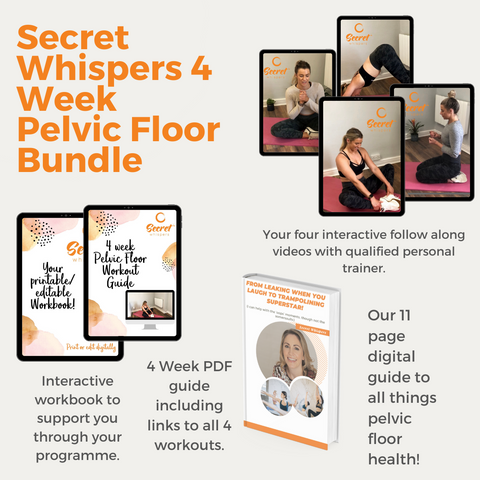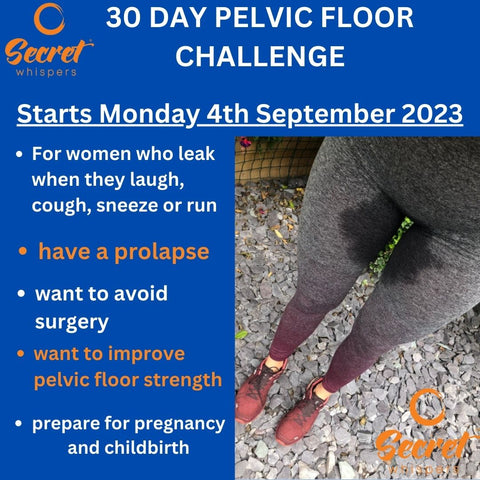Can a Pelvic Organ Prolapse Cause Fatigue?

If you're experiencing fatigue and have been diagnosed with a pelvic organ prolapse, it's natural to wonder if the two could be related. The answer is yes, a pelvic organ prolapse can indeed cause fatigue.
In addition to the physical discomfort and strain that a prolapse can cause, the emotional and mental toll can also contribute to feelings of tiredness and exhaustion.
Pelvic organ prolapse is a condition that occurs when the pelvic organs, such as the uterus, bladder, or rectum, descend into or outside the vaginal canal due to weakened pelvic floor muscles.
This can lead to a variety of symptoms, including pelvic pressure, discomfort, and even pain.
In this blog we will explore the connection between pelvic organ prolapse and fatigue, as well as provide tips on how to sleep better with this condition.
One of the reasons behind this fatigue is the strain and pressure that prolapse places on the surrounding muscles, ligaments, and tissues.
The constant strain and pressure on the pelvic floor muscles can also cause fatigue in the legs, making daily activities more challenging and tiring.
Additionally, the mental and emotional toll of living with a pelvic organ prolapse can also contribute to fatigue. The stress, anxiety, and frustration associated with this condition can affect sleep patterns and result in daytime fatigue.
In addition to the physical aspect, living with a pelvic organ prolapse can also take a toll on your emotional well-being. Dealing with the symptoms, the impact on your daily life, and the potential embarrassment or self-consciousness can be mentally draining.
It's essential to acknowledge and address these emotional aspects of living with a prolapse, as they can contribute to overall fatigue.
If you're struggling with fatigue caused by a pelvic organ prolapse, there are steps you can take to improve your sleep and manage your symptoms more effectively.
Here are some tips on how to sleep better with a prolapse:
How to Sleep with Prolapse
-
Sleep on your side with a pillow between your legs: This position can help alleviate pressure on the pelvic floor and provide better support for your body.
-
Practise good sleep hygiene: Establish a consistent bedtime routine, create a comfortable sleep environment, and avoid stimulating activities or caffeine before bed.
-
Avoid drinking excess fluids before bed: This can help reduce the frequency of nighttime bathroom trips, allowing for more uninterrupted sleep.
-
Strengthen muscles through pelvic floor exercises: Regularly practicing pelvic floor exercises, such as Kegels, can help improve muscle tone and provide better support for the pelvic organs.
-
Maintain a healthy lifestyle: Eating a balanced diet, exercising regularly, and managing stress levels can contribute to overall well-being and better sleep.
In conclusion, experiencing fatigue with a pelvic organ prolapse is not uncommon. The physical strain, discomfort, and emotional impact can all contribute to feelings of tiredness. By adopting healthy sleep habits, practicing pelvic floor exercises, and seeking appropriate medical advice, you can manage your symptoms and improve your overall well-being.
Remember that it's important to consult with a healthcare professional for an accurate diagnosis and personalized treatment plan. They can provide guidance on specific exercises, lifestyle modifications, and potential medical interventions tailored to your needs.
For more information on pelvic organ prolapse, exercises, and tips for maintaining pelvic floor health, you can read our blogs below which provides valuable insights and resources:
- The Ultimate Guide to Pelvic Prolapse and Exercise
- Caffeine and Pelvic Floor Dysfunction
- What Is the Purpose of Pelvic Floor?
- How to Know If Your Pelvic Floor Is Weak
- Is It Too Late to Start Pelvic Floor Exercises?
- How Long Does It Take to Tighten Pelvic Floor Muscles?
- A Step-by-Step Guide to Doing Kegel Exercises
To learn more about pelvic floor health, we recommend checking out the following resources:
Secret Whispers Pelvic Floor Toner for Women
Secret Whispers 4-Week Pelvic Floor Workout Programme

SECRET WHISPERS 30-DAY PELVIC FLOOR CHALLENGE
In this challenge you will learn how to do your Kegel exercises correctly and incorporate them into every day daily activities. Check out all of the reviews
For any questions or further assistance, feel free to reach out to us. Your pelvic floor health matters, and we're here to support you on your journey to well-being.
Never miss another blog again. Sign up now to our weekly Newsletter. You will get a 10% discount code to use too. Just click below ⬇️⬇️⬇️












